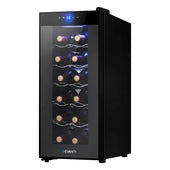Introduction: The Evolution of Dishwasher Technology
Dishwasher technology has undergone remarkable transformations since its inception, redefining convenience and efficiency in kitchen routines. Initially designed as simple tools for washing dishes, they have evolved into sophisticated devices powered by advanced engineering and smart technology. At During Days, early models relied heavily on manual controls and basic mechanisms, but modern dishwashers now integrate touchscreens, sensors, and energy-efficient systems. The growing emphasis on sustainability has spurred innovations such as water recycling and lower power consumption. Furthermore, connectivity with smart home ecosystems allows users to optimise operations remotely. These developments highlight how dishwashers have adapted to meet modern-day demands for functionality and eco-consciousness.
Smart Sensors: Precision Cleaning with Advanced Detection
Dishwashers in 2025 feature advanced smart sensors designed to optimise cleaning performance while reducing resource wastage. These sensors can detect the size, type, and soil level of dishes, allowing the machine to automatically adjust water pressure, temperature, and detergent levels.
Key innovations include:
- Soil Sensors: Measure dirt levels on dishes to modify wash cycles in real-time for improved efficiency.
- Load Sensors: Assess the weight and type of dishes to customise water and energy consumption.
- Leak Detection Sensors: Identify potential leaks early, preventing water wastage and appliance damage.
By leveraging such precise detection, these systems enhance cleaning quality, conserve key resources, and minimise environmental impact.
Eco-Friendly Innovations: Redefining Sustainability in Dishwashing
Dishwasher technology in 2025 prioritises sustainability, blending efficiency with environmental consciousness. Modern dishwashers incorporate eco-friendly features aimed at reducing water and energy consumption without compromising performance.
- Water Recycling Systems: Advanced machines utilise built-in filtration to recycle rinse water, significantly cutting down on water waste.
- Eco-Modes: Energy-efficient programmes adjust water temperature and cycle length, consuming minimal energy.
- Biodegradable Detergent Compatibility: New designs ensure compatibility with environmentally safe detergents, reducing harmful chemical residue in wastewater.
- Green Manufacturing: Many machines now feature recyclable materials and eco-friendly production processes.
These innovations highlight a commitment to sustainability, offering practical steps to minimise environmental impact.
Connectivity Boost: Wi-Fi and App-Controlled Dishwashers
Wi-Fi-enabled dishwashers offer homeowners seamless control and monitoring through dedicated mobile apps. These appliances integrate smart technology, enabling users to start, pause, or schedule cleaning cycles remotely. Notifications such as cycle completion or low detergent levels enhance convenience by reducing guesswork.
App-controlled models often feature compatibility with virtual assistants like Amazon Alexa or Google Assistant. This allows voice commands for effortless interaction. Advanced software updates ensure the dishwasher remains up-to-date with the latest functionalities.
Energy efficiency insights are easily accessible within the app, supporting eco-conscious decision-making. Such connectivity transforms everyday devices into powerful, interactive tools tailored for modern living.
Energy Efficiency Redefined: Maximising Performance with Minimal Consumption
Modern dishwashers are leveraging cutting-edge technologies to deliver unparalleled energy efficiency while maintaining high performance. Integrating intelligent sensors, these machines now measure water and detergent requirements with exceptional precision, minimising waste during each cycle. Innovations in heat exchangers and low-energy motors further reduce power consumption, ensuring eco-friendly operation.
Key advancements are seen in smart load sensing, enabling dishwashers to adapt to the size and soil level of a load. Additionally, thermal recycling systems reuse heat generated during washing, decreasing dependence on electricity. These features create a synergy between environmental consciousness and operational excellence, redefining kitchen efficiency for homeowners.
Revolutionary Drying Techniques: From Heat to Advanced Airflow
Modern dishwashers now utilise groundbreaking drying innovations, shifting from traditional heat-based methods to advanced airflow systems. These systems incorporate precise control mechanisms using directed air currents to speed up drying times while maintaining energy efficiency.
Key developments include:
- Zeolite drying technology that harnesses mineral absorption to eliminate moisture.
- Enhanced ventilation systems designed for optimal airflow distribution.
- Condensation drying methods that use cooler surfaces to reduce energy consumption.
Transitioning to these techniques has reduced residual water spots and improved results on delicate items like glassware. Additionally, sensors now adapt drying processes to load-specific requirements, offering unparalleled precision and user satisfaction.
Customisable Cycles: Tailoring Washes to Your Needs
Modern dishwashers in 2025 are designed with flexibility at their core, offering customisable cycles to address varying cleaning requirements. Users can now fine-tune settings such as water pressure, temperature, and cycle duration, ensuring delicate glassware and heavily soiled cookware are treated appropriately.
Many models feature intelligent sensors that analyse the load’s type and dirt level, automatically adjusting cycles for optimal results. Advanced app integration allows users to create and save tailored wash profiles for frequent cleaning needs.
Whether prioritising energy efficiency or deep cleaning, these innovative options empower users to customise every load with unparalleled precision.
Quiet and Compact: Noise-Reduction and Space-Saving Designs
Modern dishwashers in 2025 feature innovations that make them practically silent, addressing households where noise is a concern. Sound-dampening materials and advanced insulation layers effectively minimise operational noise. Enhanced motor designs, paired with optimised spray mechanisms, further contribute to whisper-quiet functioning.
Compact models offer solutions for limited kitchen spaces without compromising performance. Manufacturers now integrate foldable racks, sliding shelves, and modular baskets, enabling maximum storage in reduced dimensions.
Some dishwashers also include wall-mounted or drawer-style configurations, freeing valuable floor space. With these advancements, dishwashers seamlessly blend into modern kitchens, enhancing both functionality and aesthetics. These features exemplify the synergy of technology and practicality in appliance engineering.
Integrated AI: How Artificial Intelligence is Simplifying Dishwashing
Artificial intelligence has introduced transformative capabilities in modern dishwashing, enabling smarter cleaning processes that reduce human effort. AI-powered dishwashers now utilise advanced sensors to analyse the load's size, type, and dirt level before customising washing cycles automatically.
With real-time adjustments, these systems optimally use water, energy, and detergent, ensuring minimal waste. Machine learning algorithms help recognise user habits over time, adapting preferences for even greater efficiency. Features like voice control and app integration allow seamless operation and monitoring directly from smartphones or smart home ecosystems. This integration empowers effortless dishwashing tailored to individual household needs.
AI technology simplifies both operation and maintenance, redefining convenience.
Self-Cleaning Features: Increasing Longevity and Reducing Maintenance
The latest dishwashers in 2025 integrate advanced self-cleaning mechanisms, significantly reducing the need for manual upkeep. These systems utilise sensors to detect dirt buildup on filters, spray arms, and interiors, activating automated cleaning cycles when necessary. High-pressure water jets combined with self-flushing technology ensure critical components remain free of residue, maintaining optimal performance over time.
Some models employ antimicrobial coatings to avoid bacterial growth in hard-to-reach areas, further simplifying maintenance. Self-monitoring software alerts users to potential blockages or inefficiencies. By minimising human intervention and maximising cleanliness, these innovations contribute to extended appliance longevity and consistent functionality.
The Rise of Hybrid Models: Combining Traditional and Modern Technology
Hybrid dishwasher models blend time-tested cleaning techniques with cutting-edge advancements, offering unparalleled efficiency and convenience. Many feature dual-function spray arms that merge traditional water jets with ultrasonic technology for superior grime removal. These models often integrate advanced sensors capable of detecting load sizes, tailoring water usage to minimise waste.
Energy efficiency has been refined through the inclusion of smart heating elements, which balance conventional heating methods with AI-driven adjustments. High-capacity systems maintain traditional stackable racks, supplemented by modular compartments designed for sensitive items like glassware.
Such combinations cater to various preferences, bridging the gap between classic dependability and futuristic functionality seamlessly.
Future Perspectives: What to Expect Next in Dishwasher Innovation
Dishwashers are expected to become even smarter, incorporating AI-driven features for enhanced performance and adaptability. Advances in machine learning may allow dishwashers to personalise wash cycles by analysing previous usages.
The inclusion of sustainable materials and energy sources, such as solar panels or advanced water recycling systems, is anticipated to align with eco-friendly goals. Enhanced connectivity, paired with IoT integration, will likely provide seamless remote operation and maintenance alerts.
Design innovations, such as compact modular units, aim to suit homes with limited space. Emerging sensor technologies promise superior dirt detection and sanitisation capabilities, catering to evolving health standards. These advancements hint at a future where dishwashers become indispensable digital appliances.
Conclusion: The Impact of Technology on Everyday Kitchen Efficiency
Technological advancements have transformed the heart of the home—the kitchen—into an increasingly efficient space. Sophisticated dishwasher innovations exemplify these changes as they reduce manual effort while optimising water and energy consumption. Features such as AI-powered sensors, smart connectivity, and eco-friendly solutions not only save time but also help mitigate environmental concerns. Customisable wash cycles and advanced grease removal demonstrate adaptability to diverse household needs. Additionally, integration with smart homes simplifies operations, creating synergy between daily tasks and technology. These developments collectively enhance the functionality of kitchen appliances, making them indispensable for modern lifestyles centred on convenience and sustainability.






























































